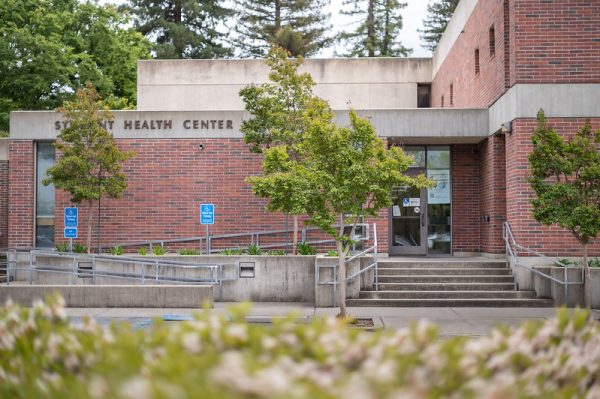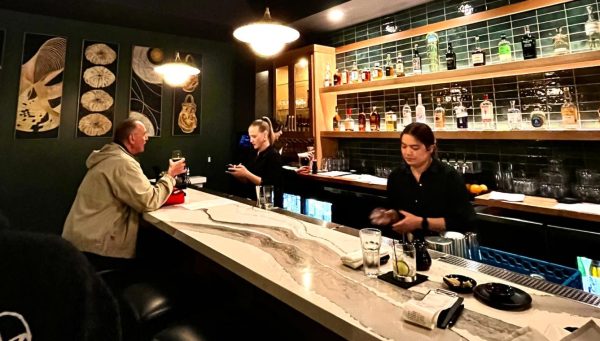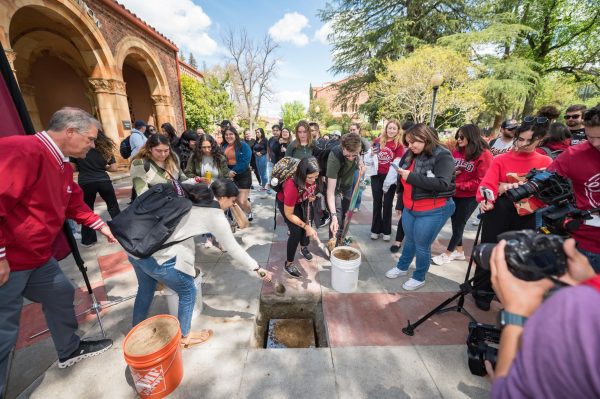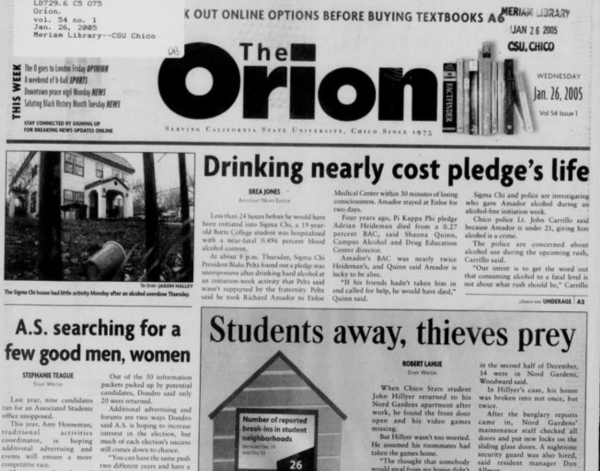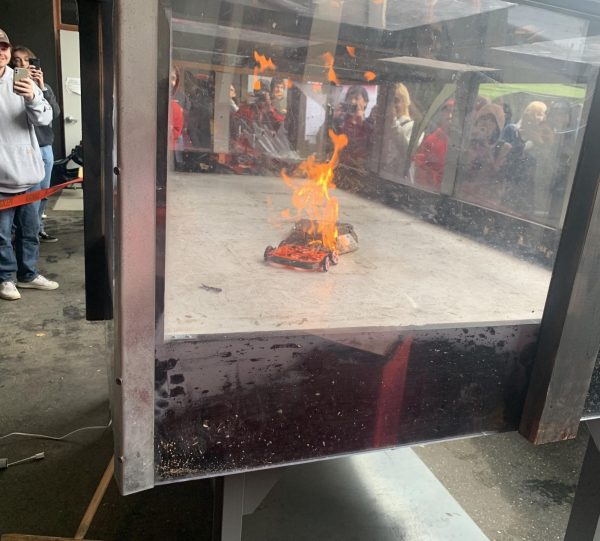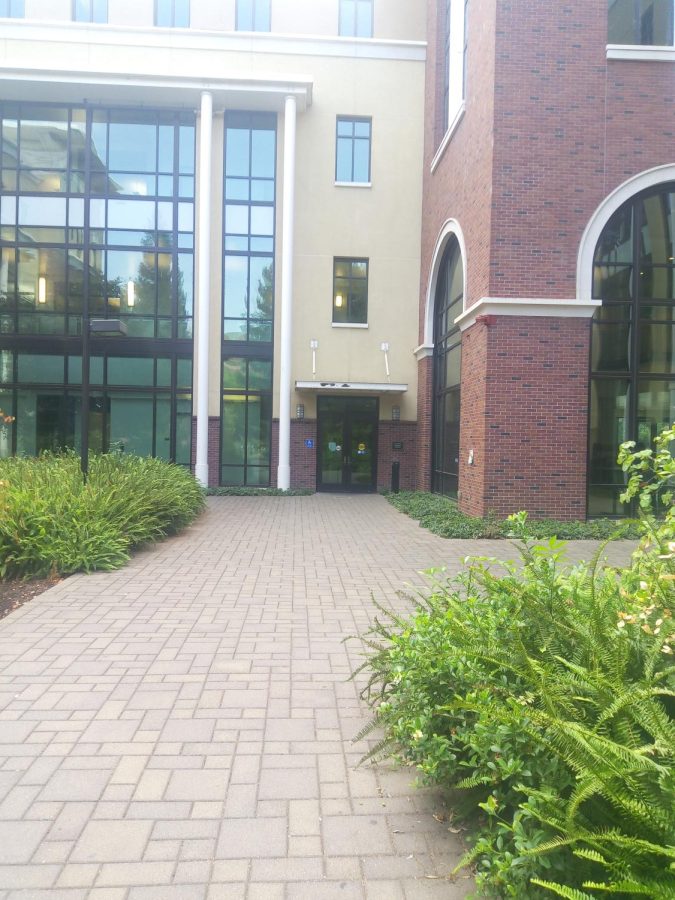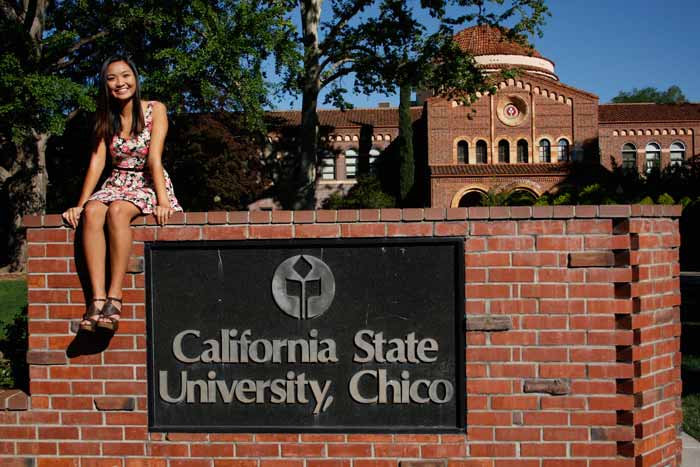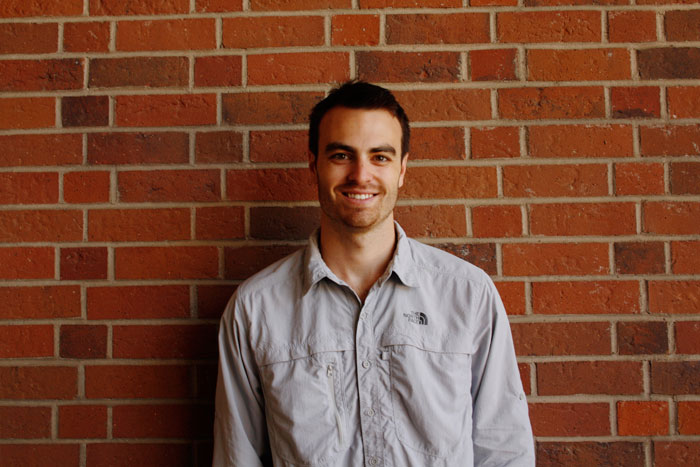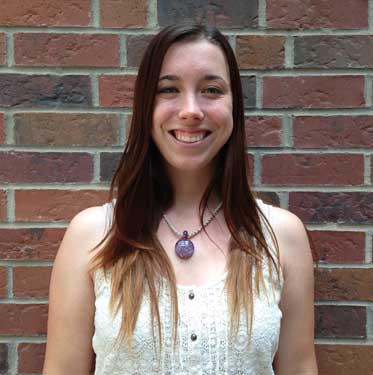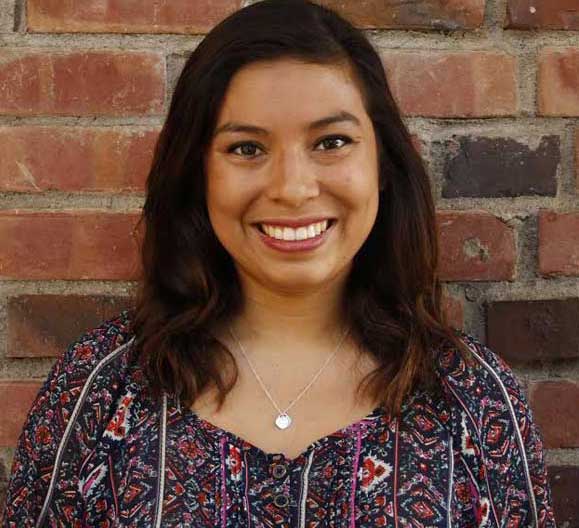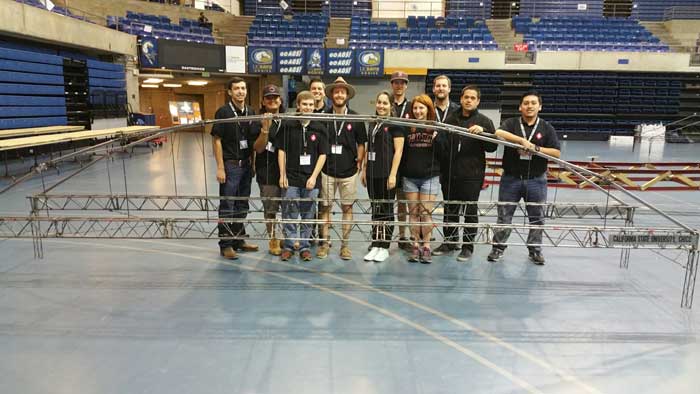Published 2007-05-13T00:00:00Z”/>
Shannon Lane
When entering an airport, junior Jamil Albaroudi guarantees he will be racially profiled.
His white complexion, shaved head and green eyes don’t make him stand out. But Albaroudi is a devout Muslim from Syria, and the name on his license is Mohamad Jamil M Al Baroudi.
Many racial stereotypes toward Muslims are affecting Chico State students more than five years after the Sept. 11 attack. Some Muslim students are working to change that by teaching others about Islam and clarifying misconceptions.
Albaroudi’s looks defy one of the Muslim stereotypes because he is white.
Many people think that most Muslims look Middle-Eastern and live in the Middle East, said Ismah Jawed, president of the Muslim Student Association on campus. But in fact there are more Muslims in Indonesia.
This stereotype may be derived from the fact the Quran is in Arabic, the Prophet Muhammad was an Arab, and the first generations of Muslims were Arabs.
The spread of Islam outside the Arabic community can be representative of Islamic teachings. Islam is about bringing people together, Albaroudi said.
“It doesn’t matter what nationality you are, and there’s no difference between a man and a woman,” Albaroudi said. “It’s a religion of peace.”
Compared to Western women, some think that Muslim women are oppressed.
Junior Bilal Khan refutes the common misconception.
“Women’s rights existed in Islam long before women received rights in the West,” he said.
Men are taught to treat women with respect and are expected to give their wives a salary, Khan said.
Women dress conservatively out of respect for their husband, he said. It’s done to avoid attention given by other men.
Although Jawed’s brown curly hair fell freely around her shoulders, she said she does not think wearing a hijab, a head cover, is oppressive.
“It’s a benefit,” she said. “The reason is to be modest and be respectful of self and to others.”
Muslims who look Middle Eastern are also stereotyped for having a connection with oil rigs.
“People have asked if my family has an oil rig in their backyard,” said junior Rami Siyam, the vice president of the General Union of Palestine Students, who is from Saudi Arabia.
He patiently waits for them to say they are joking. When they do not, he replies “No, we don’t have an oil rig.”
Siyam said mainstream media are the main reason for the misrepresentation of Muslims.
“Muslims are not terrorists,” he said.
Albaroudi decided to find out if his peers thought Muslims were terrorists.
He created a survey for his English 130 class that asked, “Do you think most Muslims are terrorists?” The students responded with 25 percent saying that they did.
Albaroudi also blames mainstream media.
“Most people just watch Fox News and might not analyze it,” he said. “People need to look for their own research because they (news networks) are all owned by the same corporations.”
American news media often depict military tactics in the Middle East to be unethical, he said.
Albaroudi joined the Syrian army for a year when he was 18. The ethics of Islam cross over to the military training in Syria, he said. The military is taught to only fight soldiers and not harm any civilians. If a soldier surrenders or runs towards a mosque, they do not kill them.
“If you kill an innocent person, then you get executed as well,” he said.
Killing yourself, such as done by suicide car bombers, is also against Islamic teachings, he said.
“Your life is not your own,” he said. “It was given to you by Allah.”
The Muslim Student Association encourages students to be open-minded, Jawed said. They choose videos that represent the other side of the story and invite all students to watch. Some of the past videos they showed were “The Road to Guantanamo,” “Paradise Now” and “Promises.”
Islam is a religion about peace, Siyam said. He believes that if everyone practiced Islam there would be peace on earth.
“The main mistake is mixing Islam with Middle Eastern culture,” he said.
There are three Islam clubs on campus: the Muslim Student Association, the General Union of Palestine Students and the Pan Arab Union Student Association, he said. Each club welcomes new members, regardless of whether they are Muslim.
Shannon Lane can be reached at <a href= “mailto:[email protected]”>[email protected]</a>
—
The Five Pillars of IslamShahadah – Faith
The founding principle of Islam. “The first pillar basically states that there is no god but Allah and that Muhammad was his prophet,” junior Rami Siyam said.
Salah – PrayerMuslims pray five times a day. A cleansing ritual is done before prayer, which includes reading the Koran or going to a Mosque, Siyam said.
“You want to be clean when you meet your creator,” he said. “You want to clear your mind to think about God and that’s it.”
Prayer is the most important thing, no matter where you are, junior Ismah Jawed said. “It’s very private,” she said. “You don’t disturb anyone.”
Zakat – Charity, The act of charity is very important in Islam.
Traditionally Muslims are expected to give 2.5 percent of their annual wealth to those in need, Siyam said.
“Exact numbers are not in the Koran, and it’s not like the government comes after you if you don’t do it,” he said. “If you have more, you give more.”
Sawm – Fast
Fasting is an Islamic practice done to be closer to Allah and to remind Muslims not to take for granted what you have, Siyam said.
While fasting, Muslims not allowed to eat or drink during the day, he said.”Most of Islam is about self-discipline,” he said.
Muslims fast for the month of Ramadan, the month when Allah’s message was sent down to Muhammad, Jawed said.
Fasting is also about thinking pure thoughts and having pure actions, she said.
It’s encouraged to read a chapter of the Koran each day, because there are 30 chapters, junior Bilal Khan said.
Hajj – Pilgrimage
Once a year, millions of Muslims participate in a three-day spiritual pilgrimage to the holy city of Mecca in Saudi Arabia.
It is expected to be done once in your lifetime, unless you are physically, financially or otherwise not able, Siyam said. The masses of people can make the pilgrimage dangerous.
Siyam has made the pilgrimage twice.
“It takes you out of the world you live in, and you realize how insignificant you are,” he said. “When I stepped into the mosque it was a different feeling. You take a breath, and you feel clean.”
